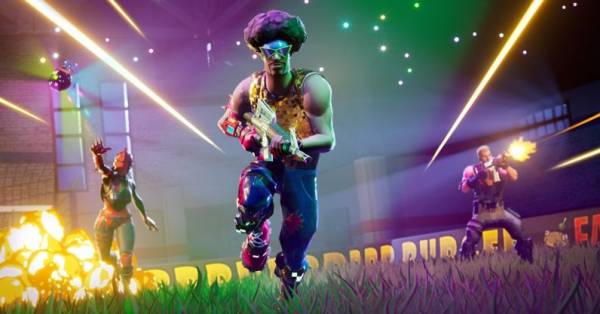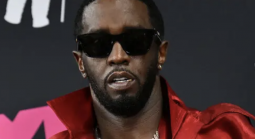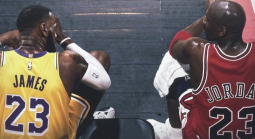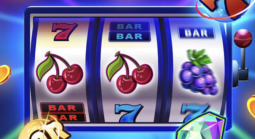Esports Integrity Chief Concerned About Fortnite Gambling
The commissioner of the Esports Integrity Coalition says skill-based betting on battle royale games like Fortnite and PlayerUnknown’s Battleground could be vulnerable to cheating.

Start Your Own Online Sportsbook - Offer eSports Betting - $3 Per Player Per Week
Esports gambling website Unikrn announced plans last month to bring legal skill-based betting to the U.S., allowing players to wager on themselves. Users would link their game to the Unikrn platform, and Unikrn will generate odds for the player based on his or her profile within the game.
ESIC Commissioner Ian Smith says such wagering is likely to be popular, but he’s concerned the industry is not yet prepared to govern it. In particular, he’s skeptical operators like Unikrn have the ability to ensure the skill ratings of the bettor match the abilities of the person manning the controls.
For instance, what would stop a player from placing a Fortnite bet using his or her account, then handing the controller over to a more talented friend? Or, what would prevent talented players from hustling the system by nuking their game profile before placing a series of big bets?
“I’m not certain that the tools exist yet that would properly identify the person playing the game is the same person who normally ran that account,” Smith told The Associated Press.
Unikrn, a betting partner of the ESIC, believes its Connekt platform can prevent such fraudulent betting.
“We have thousands of players playing thousands of matches which we use to understand the competitive ecosystem of a game and the players themselves,” Unikrn CEO Rahul Sood said in a statement to the AP. “We pride ourselves on giving users the best experience, which we can only do with a personal knowledge of how they enjoy gaming. That same personal knowledge is key to ensuring integrity in all wagering elements of our platform.”
The risk that cheating may go unnoticed is higher in battle royales than in other competitive video games. Battle royales are last-man-standing clashes between many competitors — Fortnite and PUBG host up to 100 players per game — and have more volatile outcomes than multiplayer games like League of Legends or Overwatch.
Publishers and operators can use algorithms to flag unusual performances in games like League of Legends because those games are complex and luck is not a factor.
“Just like we’re able to flag suspicious activity from an esportsbook customer, we get a deep understanding of our players by the data in their games,” Unikrn chief product officer Karl Flores said in a statement to the AP. “Basic elements, such as checking for suspicious IP address changes, and more complex game information are together used to build player models and create gamer fingerprints.”
Data from games like Fortnite or PUBG may be less reliable, though, because battle royales have less predictable outcomes. It’s not unusual for a talented player to be eliminated in the early moments of a Fortnite match, or for less experienced players to luck into a high finish.
“The battle royale games pose particular problems because they don’t actually lend themselves to traditional esports formats, and therefore to traditional betting formats,” Smith said.
The volatility is also an issue for odds-based betting on Fortnite or PUBG. Traditional sports books have successfully featured odds for major events in games like League of Legends, DOTA and Counter-Strike for years in Asia and Europe. Unikrn hopes to widen the breadth of wagers available, capitalizing on the fact that most esports lend themselves well to prop bets and in-game wagering.
Battle royales are an exception, because gamblers can essentially only bet on the final outcome.
“The betting on tournament play is evolving slowly and nobody’s making much money out of it,” Smith said. “Everybody’s interested, obviously ... but offering interesting and good markets is very, very difficult at this stage.”
Smith believes illegal esports betting in the U.S. is at least a $1 billion industry, much of it going to offshore books or the dark web. Unikrn is working to bring legal esports odds betting to most of the U.S., but skills-based betting is already legal in 41 states.
Skills-based betting is in its infancy. Unikrn’s model has players wagering against the house, rather than each other, which moves the risk from other bettors to the operator.
Smith anticipates there would be great interest in peer-to-peer betting, where bettors can challenge opponents with a similar skill head to head. Any operator using that sort of system would need to prove to bettors they’re getting a fair shake.
“If people feel they’re getting ripped off by boosters and smurfers and guys who play well above their rating in terms of a match-making system, they’re simply going to stop doing it, aren’t they?” Smith said. “There is a risk to the operator in that sense. What he really needs to do is provide a credible platform so that when you go on and play, you feel like you’re playing against somebody of roughly your level and therefore there’s a decent contest of skill involved.”
If an operator can successfully create that platform, Smith thinks the payoff could be huge. He expects legitimate peer-to-peer betting would be wildly popular.
“I think if they do that right, it’ll be enormously profitable,” Smith said. “Because there’s so many people playing this game, and having something at stake beyond your pride is always attractive, whatever game you look at. From guys playing snooker or golf or any game, putting a bit of money on a handshake generally adds something to that situation, and I see no reason why that wouldn’t be true of Fortnite.”














